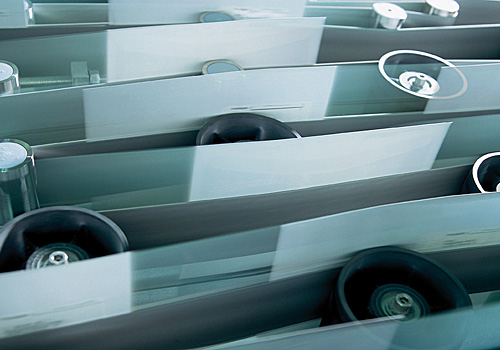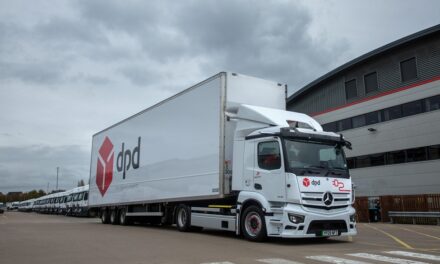
Countering shipping’s carbon impact – as standard
This year has seen a number of mail and express companies deciding to offer carbon offsetting free of charge, rather than as a premium fee for green-minded customers. The carbon footprint is now well established as an aspect of shipping and logistics in which companies can differentiate themselves from rivals. More and more mail and express companies are now offering to offset the carbon emissions associated with their customers’ shipments.
This year, however, a growing number of carriers are now taking the next step, making carbon offsets “free” for their customers as standard, rather than asking for an optional premium fee from those customers that wish to have shipments offset by a contribution to an environmental project working to reduce carbon emissions.
It doesn’t take much foresight to predict that free offsets will be supported by customers, but will a general trend see free carbon offsetting becoming expected of shippers, perhaps in the way “free shipping” has become an increasingly expected part of ecommerce deliveries?
So far this year, some of the boldest ambition in the direction of free carbon offsetting has been shown by the likes of La Poste Group, Swiss Post and FedEx Express.
Both Swiss Post and FedEx Express announced plans to apply free carbon offsets to envelope services, while La Poste has gone a step further in declaring that all of its shipments, and those of its subsidiaries, will be offset.
Swiss Post

Swiss Post believes making letters “carbon neutral” counters claims that electronic mail is the environmental choice for messages
Swiss Post took its entire addressed domestic letter service “carbon neutral” from the start of April, expecting to offset around 50,000 tons of carbon dioxide emissions each year.
The Post has been offering “Pro Clima” offsets for two years for a premium fee, and will continue to do so for services other than domestic letter delivery.
Perhaps one of the cleverest aspects of Swiss Post’s declaration was that in neutralising the environmental impact of letters, it is also neutralising that hard-to-counter allegation that the physical mail is more environmentally harmful than the electronic alternative.
The company says adding climate protection measures will “reinforce” the letter’s position as a communications channel.
“Swiss Post is adding concrete environmental protection to the advantages of the physical letter, and, additionally, strengthening the position of the letter in the communications market,” the company said of its plans.
FedEx
FedEx Express, meanwhile, which is well-known for its forays into electric and alternative vehicle technology thanks to the personal interest of chairman Frederick Smith, announced it will now be making its envelope delivery services anywhere in the world carbon neutral.
The US integrator is using BP’s non-profit carbon management programme BP Target Neutral to invest its funds in sequestering and reducing carbon emissions equivalent to around 200m document shipments a year.
Part of the FedEx “EarthSmart” initiative, the free offsets will cover envelope services including FedEx First Overnight, FedEx Priority Overnight, FedEx Standard Overnight, FedEx 2Day, FedEx Economy 2Day A.M. and FedEx Express Saver.
Mitch Jackson, the staff vice president for environmental affairs and sustainability at FedEx Corp, says: “FedEx has invested in technologies to directly reduce greenhouse gases from our greatest sources – planes, trucks and facilities.
The carbon neutral programme for the FedEx Envelope allows us to further contribute to minimising the effects of greenhouse gas emissions from our operations.”
La Poste
The French postal service is phasing in its carbon offset programme, starting with its own services and Chronopost services sold from post offices in March 2012, with all its activities including subsidiaries to be carbon neutral from July 2012.
Offsets will be provided by French public-owned agency CDC Climate.
La Poste’s DPD parcel delivery network will be one of these subsidiaries going carbon neutral from July, implementing a “Total Zero” programme for the 2.5m parcels it carries each day around Europe. DPD is expecting to pay around EUR 5m a year to offset its emissions through environmental projects in Europe and the developing world.
DPD said its major customers are responding well to the plan to move services to a carbon neutral basis. Nick Robertson, the chief executive of fashion retailer ASOS, said the move will support its efforts in being carbon neutral since 2009.
“This is a great initiative by a key supplier, and our customers will love the fact that parcels shipped via DPD will be carbon neutral from July onwards, and at no extra cost to them or us,” he said.
One interesting point from La Poste about the whole programme of offsets was that despite the difficult trading conditions for postal services at the moment, the Group is not expecting the additional cost of a full offset programme to be very high.
La Poste spokesman David Drujon said: “Mail volumes are still decreasing, but carbon offsetting requirements for our mail unit will only be about EUR 4m, representing only 0.03% of the EUR 11.5bn mail turnover.”
With that idea in mind, mail and express customers around the world may well be wondering why other delivery companies are not looking to include free carbon offsets as standard.












